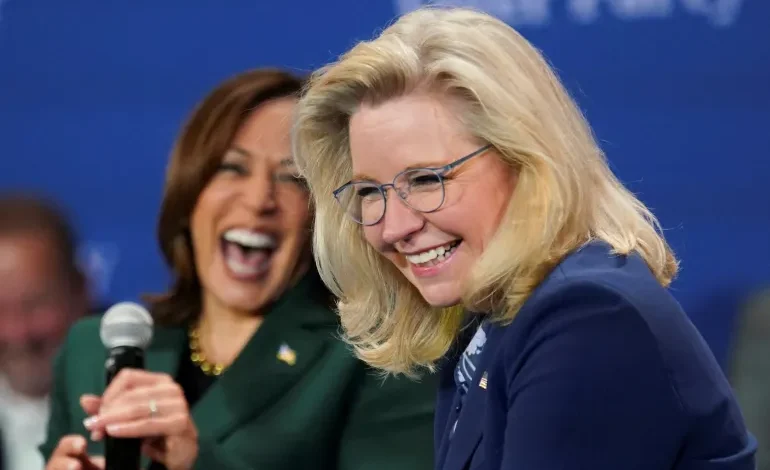Kamala Harris’s pursuit of Republican voters may backfire
Elias Khoury

As the United States presidential election nears, Vice President Kamala Harris has escalated outreach to Republican voters. Over the past several weeks, she has been accompanied by former Republican Congresswoman Liz Cheney at campaign events in the swing states of Pennsylvania, Michigan and Wisconsin and more recently by former President George W Bush’s daughter, Barbara.
On October 16 after Harris held an event with former Republican lawmakers in Pennsylvania, she gave an interview to Fox News, saying: “I invite ideas, whether it be from the Republicans who are supporting me, who were just on stage with me minutes ago, and the business sector and others who can contribute to the decisions that I make.”
Many prominent Republicans have endorsed Harris, including former Vice President Dick Cheney, former Congressman Adam Kinzinger, and late Senator John McCain’s son Jim. She has also gained the approval of 200 staffers of former Republican presidential nominees.
Trying to encourage this momentum, Harris’s campaign even established Republicans for Harris chapters in several swing states.
However, Harris’s pursuit of Republican voters may not bring the results she hopes. At the grassroots level, things remain hopelessly polarised. Prominent endorsements notwithstanding, few members of the opposition party will cross “enemy lines” to back Harris. In fact, her rightward sway may actually cost her more Democratic votes than the Republican ones she gains.
On October 16 after Harris held an event with former Republican lawmakers in Pennsylvania, she gave an interview to Fox News, saying: “I invite ideas, whether it be from the Republicans who are supporting me, who were just on stage with me minutes ago, and the business sector and others who can contribute to the decisions that I make.”
Many prominent Republicans have endorsed Harris, including former Vice President Dick Cheney, former Congressman Adam Kinzinger, and late Senator John McCain’s son Jim. She has also gained the approval of 200 staffers of former Republican presidential nominees.
Trying to encourage this momentum, Harris’s campaign even established Republicans for Harris chapters in several swing states.
However, Harris’s pursuit of Republican voters may not bring the results she hopes. At the grassroots level, things remain hopelessly polarised. Prominent endorsements notwithstanding, few members of the opposition party will cross “enemy lines” to back Harris. In fact, her rightward sway may actually cost her more Democratic votes than the Republican ones she gains.
In a poll released on October 25, just 4 percent of Republicans said they intended to vote for Harris. The same percentage of Democrats said they would vote for Republican candidate Donald Trump. In other words, Democrats for Trump are just as much of a thing as Republicans for Harris. This makes the prediction that “millions of Republicans” will cast a ballot for Kamala Harris utterly fanciful.
Some may argue that Harris is trying to sway Republican voters specifically in swing states. But even there, the numbers do not differ dramatically.
According to New York Times/Siena polls, Harris is winning 7 percent of registered Republicans in Arizona while 6 percent of the state’s Democrats back Trump. In Pennsylvania, these numbers are 12 percent and 10 percent respectively. In Nevada, Harris is getting 6 percent of registered Republicans and Trump is getting 10 percent of the Democrats. The margin of error for all these polls is 3 to 4 percent.
While Harris is running after the few Republican voters who may flip, she is alienating many others on the progressive side. According to the Pew Research Center, progressives constitute roughly 12 percent of the Democratic base. The millions of votes who went for Senator Bernie Sanders, a prominent progressive, in the Democratic primaries in 2016 suggest this group may be even larger.
Harris’s swing to the right is definitely not well received by progressives. Her promise to sign “the toughest bipartisan border” bill in decades has earned rebukes from immigration advocates. Likewise, her unequivocal support for Israeli aggression is a cold shoulder to proponents of peace and basic human rights. On healthcare, after endorsing universal coverage during her 2020 run, Harris has now stopped well short of that.









